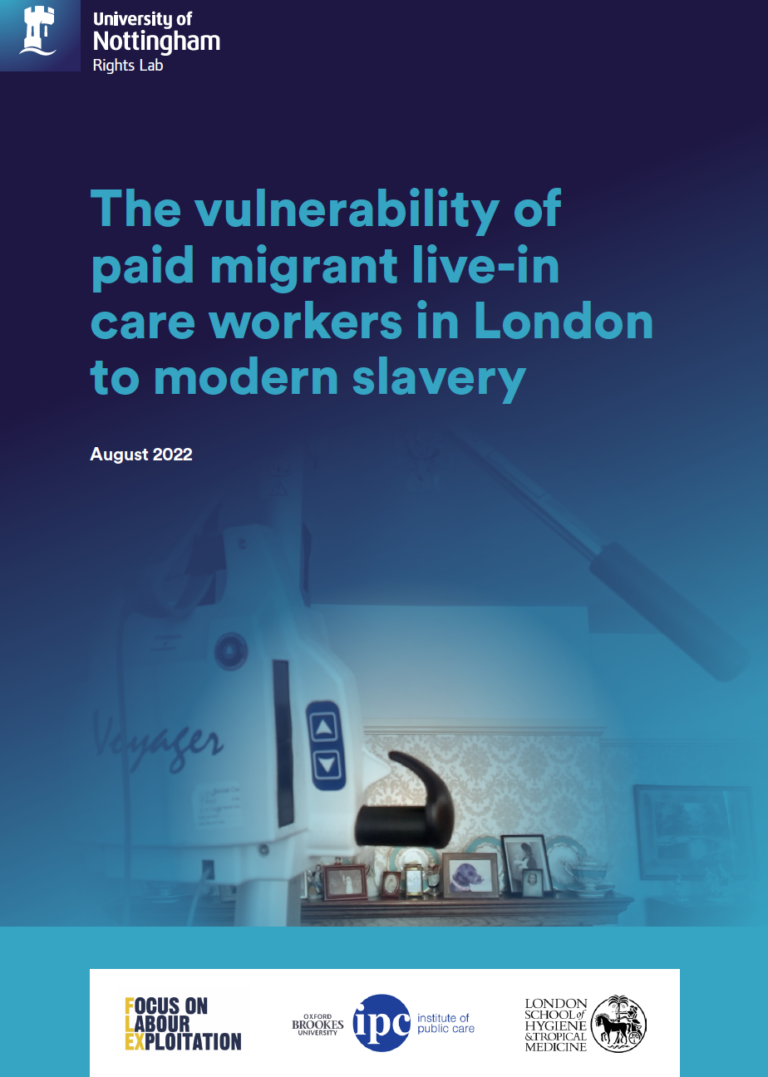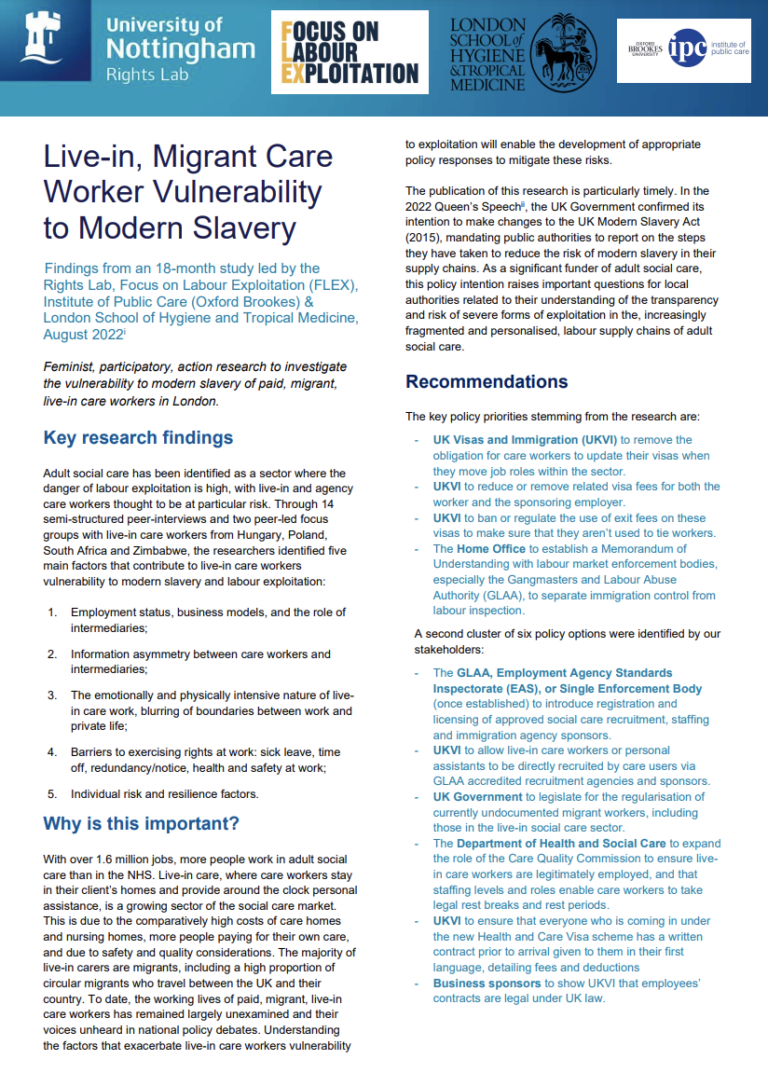This report presents the findings and recommendations arising from an 18-month research project, conducted between February 2021 and July 2022, which used feminist, participatory, action research methods to investigate the vulnerability to modern slavery of paid, migrant, live-in care workers in London.
Live-in care represents a specific segment of the adult social care sector in England. Live-in care workers stay in their client’s home and provide around-the-clock presence and personal assistance as required with activities of daily living (for example, getting around, dressing and washing) to enable people with care and support needs to live independently in the community or remain at home with intensive and often specialised support (as opposed to moving to a care home for example). Our research sought to understand better the risks and drivers of vulnerability to modern slavery and severe forms of labour exploitation.
There have been longstanding concerns about severe forms of exploitation in the UK in the care sector. The Director of Labour Market Enforcement has identified adult social care as a sector where the danger of labour exploitation is high, with live-in and agency care workers believed to be at particular risk. A specialised form of domestic work, live-in carers delivering personalised care in the home are considered vulnerable.
A total of 14 semi-structured peer interviews and two peer-led focus groups were conducted with live-in migrant care workers from Hungary, Poland, South Africa and Zimbabwe. An additional three practice interviews were carried out by peer researchers with each other, which informed the research but were not used in the analysis.


